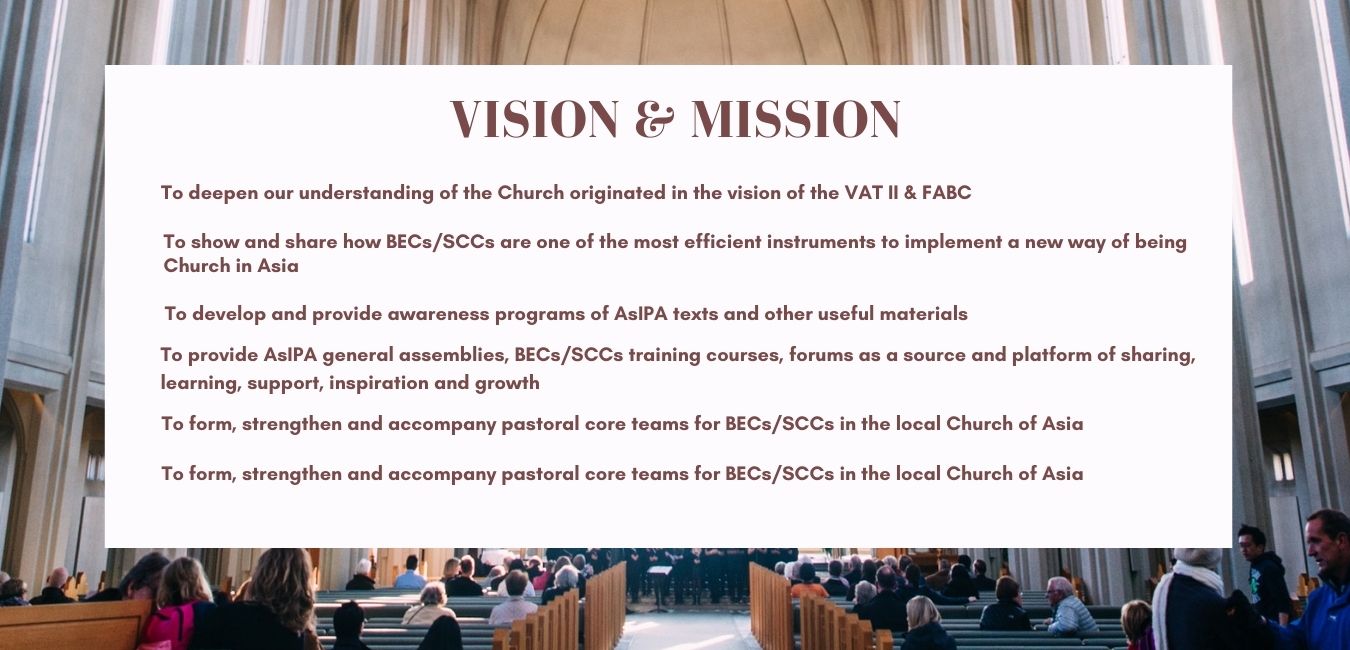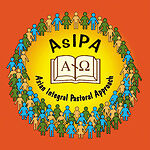
THE FUTURE DIRECTIONS OF OUR BECs AND THE NEW WAY OF BEING CHURCH
We are all aware that AsIPA has been the product of the FABC Plenary Assembly in Bandung in 1990 and their request for LUMKO training to implement a revival for the new millennium the New Way of Being Church. The first two years, 1991 and 1992 were packed with training and workshops using the LUMKO resources and methodology until it was evident that a more contextualized and local way of implementation was needed and the 1993 consultation with three offices of FABC resulted in the FABC OLF taking over this mandate to train and form the LAITY as well as the BISHOPS in what became known as the Asian Integral Pastoral Approach which used a mixture of resources from Lumko as well as some locally produced modules and processes.
AsIPA has been an approach used in many dioceses with good effect. In some countries, the process put in place has resulted in national teams and training programmes reaching the grass roots. The mandate of FABC is not to work at the grassroot as an employee of any diocese or country but to provide the tools and processes that will enable the local leaders, especially the bishops to implement the New Way of Being Church especially through the Basic Ecclesial Communities or Small Christian Communities. In our bag of tools we have always included the Catechumenate communities, the development of Parish Pastoral Councils and Pastoral Ministries such as visiting neighbours, visiting the sick etc. Local implementation has resulted in greater diversity of materials and tools.
Now, we are in 2018 which is 25 years since we began this journey. The FABC Central Committee together with the Secretary General has seen fit to change the name, the emphasis and the methodology as a way to give greater impetus to BECs and involve everyone not yet included.
The AsIPA Resource Team, the Executive Secretaries and FABC OLF have not been part of the conversation towards this new initiative so we are unable to provide any details about the new plans.
For this reason we are proposing to all those present at this Assembly that you develop at diocesan or national level a two or three year plan that is sustainable and faithful to the vision. Your pastoral strategies must rely on your own resources for the time being, until the FABC office is able to respond to your needs some time in the future. Your formation and training programmes must provide for renewal of leadership and expansion of ministries within the BECs without neglecting the bigger picture of your catechumens, your PPCs and other organisations who are part of the new way.
The ART team stands ready to help but we are no longer able to support ourselves with funds from the agencies who provide funding through the FABC. With this in mind we are available should the need arise.
THANK YOU.
THE ART TEAM
